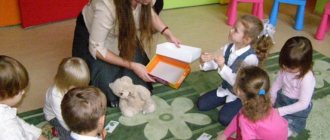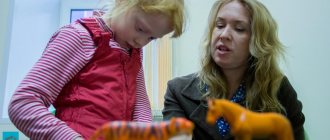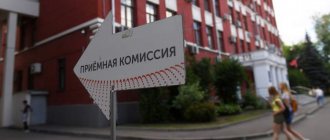The development of speech in preschool children has been and remains one of the most pressing and important problems of pedagogy and psychology. The importance and significance of this problem lies not only in the fact that it gives an idea of the general patterns of child development, but also introduces the peculiarities of the formation of the personality of a preschooler.
An undoubted contribution to the development of speech development methods was made by K.D. Ushinsky, the idea of nationality that he developed found its response. Including the idea of introducing children to the national culture of the people was and remains relevant. Central to his vast heritage is the teaching of the mother tongue. K.D. Ushinsky outlined the main theoretical principles regarding the role of the native language in the formation of a person in the books “Native Word”, “Children’s World”, “Man as a Subject of Education”.
In his opinion, language is the result of the influence of the objective world on a person and the person’s relationship to it; language reflects the centuries-old experience of the spiritual life of the people (the experience of knowledge, the experience of the moral life of the people, the experience of their aesthetic views), which is transmitted through language to subsequent generations. These and other provisions are the core of his pedagogical concept and determine the methodology he developed for teaching his native language.
A significant contribution was made by E.I. Tikheeva, under whose authorship a domestic system of work on the development of speech in children of early and preschool age was developed. It was E.I. Tikheeva who substantiated the need to develop the speech of preschoolers, formed the goal of the kindergarten’s work in this section, determined the theoretical foundations of the methodology, the main directions of work on speech development, developed the most important sections of the methodology: speech development in the first years of a child’s life, children’s dictionary, classes according to the living word. She poses problematic questions about the need for the development of grammatical structure, the sound culture of a child’s speech, and teaching literacy.
He considers the most important theoretical principles of the method to be the development of speech in communication and activity, and comes to the idea of the need for an adult’s learning influence on the development of a preschooler’s speech and the possibility of creating a program for speech development. The program developed by E.I. Tikheeva was built on the basis of a linguistic approach to speech development: from sound to word, from word to coherent speech. Thus, coherent speech was the last stage in the development of speech in preschool children, and the dictionary was considered as a tool for its development.
In developing these ideas, E.I. Tikheeva returns to the ideas of I.G. Pestalozzi. Therefore, the development of vocabulary in preschool children becomes a central task. An interesting fact is that the theoretical foundations of vocabulary work proposed by E.I. Tikheyeva, a cycle of classes on vocabulary development (excursions, games-activities with toys, inspection of objects, exercises), didactic materials and games (didactic pictures, pictures, etc.), conditions for the development of vocabulary in the process of play and work - all this became a guide to action for subsequent generations of practical workers in preschool education.
It is necessary to note the relevance and significance of those provisions put forward by E.I. Tikheeva on the issue of dictionary work: a visual, sensory basis for the development of the dictionary; active activity position of the child himself; taking into account the interests and capabilities of children; the need to activate children's speech in classes and in everyday communication; creation of a specially organized environment, meaningful communication with children; the need for an adult’s teaching position in the development of children’s speech; the importance of special professional training for teachers to work with preschool children.
E.I. Tikheeva pays great attention to the issues of training personnel for preschool organizations. It defines the requirements for the training of a kindergarten teacher, for example the following: having a higher pedagogical education, knowledge of the psychology of a preschool child, the ability to study it, the ability to bring the work of a kindergarten closer to theory, requirements for the competent and correct speech of the teacher himself.
It was E.I. Tikheeva who came up with the idea of creating a program for the development of speech in preschool children, which was evaluated and implemented only a quarter of a century later; the idea of the possibility of mastering concepts and reflecting them in the speech of preschoolers; the idea of planning work on speech development; the idea of combining learning and everyday communication with the child for targeted language acquisition; the idea of the need for constant support and assessment of the child’s speech achievements in the pedagogical process.
E.I. Tikheeva created her own system of teaching children’s native language in preschool organizations, the leading principles of which are the following:
-activity approach to speech development - speech develops in activity, and above all, in play, through play, in work;
- the relationship between speech development and other aspects of educating a child’s personality (mental, sensory, social, aesthetic, physical education);
-visuality in learning – the child’s language develops visually, and only in the material world will each new word become the property of the child in connection with a clear, concrete idea;
- gradualism and repetition. E.I. Tikheeva advised to gradually increase the number of subjects;; gradually move from listing objects to listing the characteristics and qualities of objects, from individual conversations to collective ones, from the perception of unfamiliar objects to objects that are familiar, but not currently observed, etc.
E.A. Flerina had a significant influence on the development of speech development methods. She viewed teaching her native language in line with the traditions of the national methodology. E.A. Flerina put the content of the speech in the first place. She believed that to enrich the content of speech, sufficient personal experience of the child is necessary; the most productive methods of accumulating experience, according to E.A. Flerina, are observation, play, work, experiment. The clearer, more specific and emotional the accumulation of experience is, the more successfully and with greater interest children rely on it in conversations and conversations.
It should be noted that among the speech tasks E.A. Fleurina emphasized expanding the vocabulary, enriching the structure of speech, working on pure pronunciation, speech culture, its expressiveness, familiarity with fiction, the development of children's verbal creativity, and mastering various forms of living words. She considered the social environment and the organization of the developmental environment in a preschool organization to be important factors in speech development.
E.A. Flerina is credited with creating a system of work to familiarize preschoolers with fiction and introduce them to the art of words. She determined the importance of fiction in the education of preschool children, highlighted the peculiarities of the perception of literary works, identified criteria for selecting works, gave a classification of children's books according to the thematic principle, and developed in detail a methodology for artistic reading and storytelling depending on the age of the children.
An important achievement in the development of the theoretical positions of the methodology was the study of A.M. Leushina under the leadership of S.L. Rubinstein. This collaboration between a psychologist and a teacher, aimed at studying the coherent speech of preschool children under the conditions of pedagogical influence, made it possible to reveal the genesis of coherent speech in general, as well as the true possibilities of a child’s speech development, and to show the pedagogical conditions of this development.
In the works of A.M. Leushina and S.L. Rubinstein for the first time the concept of coherent speech is revealed in connection with the child’s thinking and is associated with the development of mental functions. This gave a new understanding of the semantic core of the methodology and clarified the subject of the methodology for the development of speech as a science. Psychological and pedagogical theoretical and experimental research by A.M. Leushina showed the illegality of identifying such concepts as “language” and “speech”. It was the definition of the unit of speech that made it possible to reconsider the purpose of work on speech development in kindergarten and set priority tasks. Based on the leading communicative function of speech in preschool age, the main goal was the development of speech as a universal means of communication between the child and people around him. To achieve this goal, it is necessary to solve a number of problems, the main one of which is the formation of coherent speech in preschool children. Solving other speech problems (development of vocabulary, grammatical structure, sound culture of speech) is aimed at improving coherent speech as the child grows up.
Developing the conditions for the gradual replacement of a child’s situational speech with contextual one, A.M. Leushina especially emphasizes the role of the adult. An undoubted pressing issue in the works of A.M. Leushina was that she developed a new theory of retelling, which forced her to radically reconsider her attitude towards this type of speech task. This discovery has put forward new requirements for the retelling technique, ranging from the selection of texts, where it is not so much the volume that is important, but the structure, to a specific management technique. These current provisions in relation to issues of speech development in preschoolers have found their distribution and further improvement in the research of A.I. Sorokina, A.F. Uspenskaya, V.R. Bespalova and others.
Thus, it can be noted that in solving methodological issues of children’s speech development, teaching methods are beginning to occupy an increasing place, and activities are beginning to dominate in the forms of work with children.
A student and follower of A.M. Leushina, Vera Iosifovna Loginova, contributes to the development of methods for developing the speech of preschool children. As a result of a detailed analysis of the historical heritage of K.D. Ushinsky and E.I. Tikheeva, relying on the mental research of S.L. Rubinstein, A.V. Zaporozhets, A.A. Leontiev, Vera Iosifovna develops a coherent, logical theory of vocabulary work. This theory made it possible to radically change the accepted ideas about the patterns of speech development in preschool children. The high effectiveness and promise of scientific research, the scientific and practical significance of the results allow V.I. Loginova to rightly be called the author of modern theory and methods of vocabulary work with preschool children. Developing methods for the development of coherent speech in children, V.I. Loginova offers her original author’s classification of language teaching methods. This classification is constructed in accordance with the logic and psychology of mastering a monologue, the age characteristics of preschool children, and takes into account the sequence in which a child masters the skills of monologue coherent speech.
The classes developed by V.I. Loginova on speech development represent an organic unity of pedagogically sound scientific content, impeccable logic and fun children's games. When organizing classes, special attention is paid to motivating the child’s activities. The educational task solved within the framework of the lesson is always presented in the form of an interesting game or creative situation.
Following the principle of conformity to nature, which involves taking into account the age characteristics of children, studying the personality of each child and designing work with him, V.I. Loginova asserts the need to use various forms of work with children - both collective, subgroup and individual.
The candidate dissertations of O.N. Somkova, O.V. Akulova and other researchers were devoted to the study of such important issues as: the influence of system knowledge on the formation and development of artistic and speech creative activity of a preschool child, the role of modern children's literature in the development of a preschool child.
Doctor of Pedagogical Sciences, Professor V.I. Loginova created a large scientific school of specialists in speech development methods. Knowledge of leading domestic and foreign theories and trends in the development of pedagogy, psychology and linguistics allowed her to see the prospects for the development of science and predict its priority areas for research. A whole direction of scientific research has emerged on the impact of learning a foreign language on the development of a child’s speech, on the linguistic aspects of a child’s acquisition of his native language.
It is thanks to the talent of V.I. Loginova as a scientist and teacher, her scientific passion and hard work that in a relatively short period of scientific activity in the field of methods of speech development, her scientific heritage includes a whole range of studied problems: from the history of the formation of methods for the development of speech in preschool children to specific methodological issues and promising directions for its development.
Thus, analyzing the contribution of teacher researchers to the development of methods for the development of speech in preschool children, we note the following: the content of the method has been significantly enriched, thanks to research, the method of speech development has finally emerged from the narrow methodological framework and turned into a science that has stood on a solid theoretical basis; the subject of the methodology for the development of speech as a science was defined, the basic concepts and most important methods were developed, and a theoretical basis was provided for understanding and studying specific issues of the methodology.
Stages of speech development in children from birth to school
Human speech develops in stages. Its formation begins from birth. Russian psychologist and linguist Alexey Leontiev identified a number of important stages of speech formation that a child goes through: preparatory, pre-school and pre-school.
The preparatory period covers the period of time from birth to one year, it is divided into 3 stages:
- scream _ With its help, the newborn communicates with the people around him. This is the first vocal reaction. The child uses it to tell his mother about his discomfort. Thanks to screaming, articulation, voice, and breathing are trained;
- revelry _ Lasts until six months of age. The baby reproduces certain sounds and their variations (a-gy, boo-oo, a-gu). At this stage, it is important to support the child's desire to communicate. To do this, parents should repeat what the baby says;
- babble _ This stage lasts up to a year. It is the final stage of preparing the baby for full speech. Children begin to pronounce repeated syllables (ma-ma, va-va, ba-ba, yes-da, pa-pa). At first, the child pronounces simple words unconsciously. But by 10-12 months, children begin to meaningfully use “ma-ma”, “ba-ba”, etc.
The pre-school stage begins when infants begin to consciously pronounce their first words. It lasts from 12 months to 3 years. Children's first words are general in nature. For example, “give” can mean a request, a desire, or an object. Therefore, only family members understand the baby for now.
From the age of one and a half years, children begin to pronounce words in full, and not in a truncated form. The lexicon continues to expand. Kids try to put simple words into sentences without prepositions. For example, “Masha am-am” means that Masha is hungry. By the age of three, questions are formulated in speech: “How?”, “Where?”, “Where?”, “When?”.
Children under three years old actively use gestures
The child learns to use prepositions, agree words in case, number, gender. Four-year-old children already communicate using complex and compound sentences. The preschool stage of speech formation lasts from 3 to 7 years. This is a time of active replenishment of the vocabulary.
By the end of the preschool period, children pronounce all sounds correctly and have a broad outlook.
Speech exercises
To develop speech, it is recommended to perform special exercises. Classes can be conducted in the form of a game to interest the child.
Effective speech exercises:
- searching for an item. At least three toys are placed in front of the baby. They ask him to turn away and at that moment they hide one of the things. Then the adult offers to name and describe what item is missing;
- comparison of pictures. Show your child a drawing of animals. Ask him to conduct an analysis. For example, a giraffe is big and a dog is small;
- imitation of the voices of birds and animals;
- memorizing tongue twisters, pure tongue twisters;
- names of objects in singular and plural;
- description of a fairy tale from a picture;
- search for words starting with the given letter;
- rhyming words.
What can parents and teachers do?
I was once delighted by Tikheyeva’s idea of raising children based on play. She said the key is to find a compelling story and turn it into a teaching tool. And I took advantage of this. I realized that a personal approach is important here. And what is interesting at 2-3 years old may not affect older people at all. Sometimes, a big book and numerous bright illustrations are all that a baby needs. But for those who are older, the material needs to be informative!
It is worth taking into account the characteristics of toddlers, the foundation of knowledge that is embedded in them, and your goals. You, my good friends, are dealing with the most malleable material. From it you can “blind” whatever you want or whatever you have the strength and courage to do.
For example, raising bilingual children is your conscious choice. You want your child to become fluent in several languages. And you are right, it is much easier to do this at an early age. But then you need to be able to bring the idea to the end, and think about what books to read and what form of education to choose.
But even with knowledge of only one language, development presupposes absolute mutual understanding and interaction between parents and teachers in kindergarten. If they cannot or do not agree to support your work in nurturing your toddler’s personality, you should not trust them with your Miracle!







